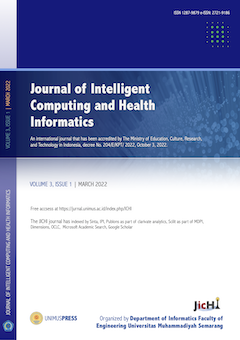1. Statement and Policy
JICHI upholds a zero-tolerance policy on plagiarism and is fully committed to academic integrity. All manuscripts submitted must be original, not under consideration elsewhere, and free from plagiarism, including self-plagiarism.
Definition of plagiarism: Plagiarism is the use or close imitation of the language, structure, ideas, or thoughts of another author and presenting them as one's own, without proper acknowledgment.
- All reused content must be properly quoted, paraphrased, and cited.
- Material exceeding fair use (more than two or three sentences, full paragraphs, or figures) requires reference and, where needed, permission from the original publisher.
- Previously published content must not be resubmitted unless significantly revised and clearly disclosed.
All submitted manuscripts are subject to similarity screening using tools such as iThenticate or Turnitin .
2. Similarity Level
Each manuscript will be reviewed based on its similarity index, and appropriate editorial actions will be taken as follows:
| Similarity Index | Editorial Action |
|---|---|
| > 40% | Rejected due to high overlap. No resubmission allowed. |
| 10–40% | Returned for major revision. Proper citation and rephrasing required. |
| < 10% | Generally acceptable. Minor citation improvement may be requested. |
Authors must address all flagged similarities, submit a revised manuscript, include a new similarity report (<10%), and provide a response letter explaining all corrections made.
3. Plagiarism, Similarity, and Paraphrasing
Plagiarism involves reproducing others' work without acknowledgment, including copying:
- Sentences or paragraphs without citation
- Data, tables, or images without permission
- One’s own previous publications without disclosure (self-plagiarism)
Similarity refers to significant textual overlap that may not be intentional but still requires correction.
Paraphrasing is allowed and encouraged when done properly. Authors must:
- Use their own words to express others' ideas
- Cite the original source even when reworded
Examples of ethical reuse include quoting definitions with citation, summarizing previous studies with attribution, and referring to prior work in the literature review.
4. Additional Information
Reuse of Prior Work
- All reused material must be cited and distinguished from new contributions.
- For conference papers submitted as journal articles, at least 30% new content must be added, and the original source must be cited.
- Translations of previously published works require proper citation and copyright clearance.
Repeat Offenses
Repeated or severe violations may result in a submission embargo of up to 10 years, following review by the Editorial Board and in accordance with COPE guidelines.
Appeals
Authors may submit a formal appeal to the Editor-in-Chief if they disagree with a plagiarism-related decision. Appeals must include:
- A written justification
- Supporting documentation (e.g., similarity report, permissions)
- Revised manuscript (if applicable)
The appeal will be reviewed by at least two Editorial Board members not involved in the original decision. The outcome will be communicated in writing.
Inter-Journal Cooperation
If overlaps are discovered with content submitted to or published by another journal, JICHI may notify the other journal's editor, share relevant evidence, and coordinate actions in accordance with COPE inter-journal guidelines.
Ethical Framework Reference
JICHI adheres to the ethical standards of the Committee on Publication Ethics (COPE).
Reference:
Committee on Publication Ethics (COPE). (2019). Text Recycling Guidelines. Retrieved from https://publicationethics.org








